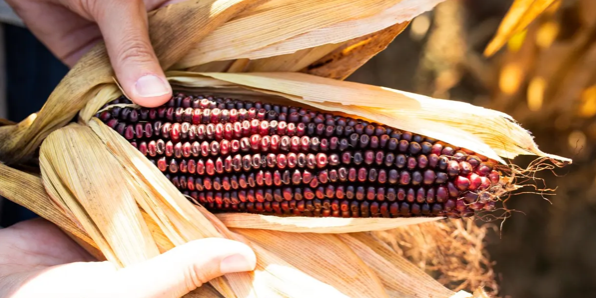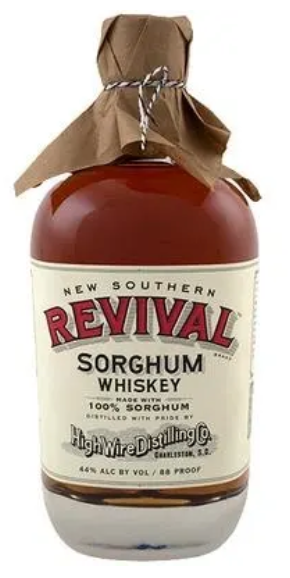Scott Blackwell
“Heritage, Grain & Green Soil”
Scott Blackwell is the co-founder, distiller, and driving creative force behind High Wire Distilling, located in Charleston, South Carolina. Alongside his wife, Ann Marshall, he has built a distillery that weaves together craft entrepreneurial energy, agricultural heritage, and food-industry experience into spirits with character and place.
Raised in Texas, Blackwell worked first as a club DJ and soon found himself in the DJ scene in Miami. But Blackwell’s business ownership aspirations began before long. In 1983, while still a college student, he launched his first entrepreneurship: distributing Ben & Jerry’s ice cream. A few years later, he founded Immaculate Baking Company, which produced organic baked goods such as cookies, brownies, and bars. The bakery operation grew from something small that was started in his garage to a sizable enterprise. His entrepreneurial streak then later led him into the world of coffee. Inspired by the emerging specialty coffee scene in places like Seattle during the early 1990s, Blackwell began roasting beans at his restaurant in South Carolina. By 2012, Immaculate Baking had grown to the point of significant scale, and he and Ann decided to sell the business to General Mills. That provided both the financial foundation and the space for the next chapter in their life: distilling.
Home-brewing experiments beginning around 2010 inspired Blackwell and Ann to consider building a brewery. But after exploring that possibility, they decided the craft distilling field was underserved, especially with respect to spirits made from heritage, so-called “lost,” or under-utilized grains. So in 2013, they founded High Wire Distilling Company in downtown Charleston. The distillery was designed to celebrate the flavor that comes from raw ingredients: heritage grains, local farms, regenerative practices, and to avoid the stereotype of spirits that taste interchangeable. High Wire’s first whiskey expression was High Wire Revival, made from sorghum, but an important early decision in the life of High Wire was that, rather than relying mainly on common yellow dent corn for bourbon mash bills, they committed to reviving a near-extinct heirloom variety known as Jimmy Red corn.
Jimmy Red corn is ideal for coastal communities because its roots grow in the ground differently from regular corn, so it is more resistant to wind damage from storms
Working in partnership with Clemson University and with local farmers, Blackwell and his team obtained Jimmy Red seed, planted acreage, and tested how the grain would perform both in flavor and in distillation. Their first batch of bourbon was distilled in the fall of 2014. Though the bourbon took time to age, this spirit became High Wire’s signature bourbon. Called New Southern Revival, it uses 100% Jimmy Red corn and is deeply tied to the distillery’s identity.
Scott Blackwell’s approach blends culinary sensibility, agricultural soil knowledge, and artisanal care. He often speaks about the importance of terroir, of farming practices, of which grain varieties are used, and how much of what ends up in a bottle begins in the field. Scott is focused on using local, heritage, or heirloom seeds, no-till or regenerative farming practices, preserving seeds, and selecting grains for flavor rather than just yield.
Blackwell, now in his early 60s, also serves a leadership role in the local distilling scene. He is President of the South Carolina Craft Distillers Guild. Through that role, he’s been involved in legislative and regulatory work to help small distillers thrive, for example, helping pass laws giving micro-distilleries more parity in hours and in what they can sell direct to consumers.
For his efforts, not only have South Carolina drinkers noticed the quality and care that Scott puts into his craft, which ultimately makes its way into a glencairn of High Wire whiskey, but so have local government officials. In 2022, Scott and Ann were honored as Charleston County Economic Development (CCED) Ambassadors. The CCED recognized early on that the dynamic distilling duo had made a lasting impression in the Charleston community through their encouragement to source local ingredients and provide a helping hand to fellow distillers, chefs, and culinary counterparts. Meanwhile, the public has also continued to respond to High Wire’s products, and the distillery subsequently moved into a newly renovated, larger space on Huger Street in Charleston to increase capacity.
Scott Blackwell’s story is interesting not just for the spirits he makes, but for his model: combining entrepreneurship in food, hospitality, local agriculture, seed preservation, and craft distilling, not to mention business acumen and leadership. Blackwell demonstrates a way to make that model commercially viable: having multiple earlier ventures in baking, coffee, and distribution, and in believing in slow growth, being patient with aging whiskey, and staying close to the source of his ingredients.
Sources:
Barleycorn Drinks, “High Wire Distilling’s Scott Blackwell and Ann Marshall,” www.barleycorndrinks.com/spotlight
Life & Thyme, “High Wire Distilling Company’s Jimmy Red Corn Bourbon,” lifeandthyme.com
High Wire Distilling: Our Story, highwiredistilling.com
Beverage Trade Network, “Rediscovering Heritage: Scott Blackwell on Reviving Forgotten Grains in Distilling,” beveragetradenetwork.com
Charleston City Magazine, “15 Minutes with Scott Blackwell and Ann Marshall,” Emily Storrow, September 2023
Contributed by Tracy McLemore, Fairview, Tennessee








